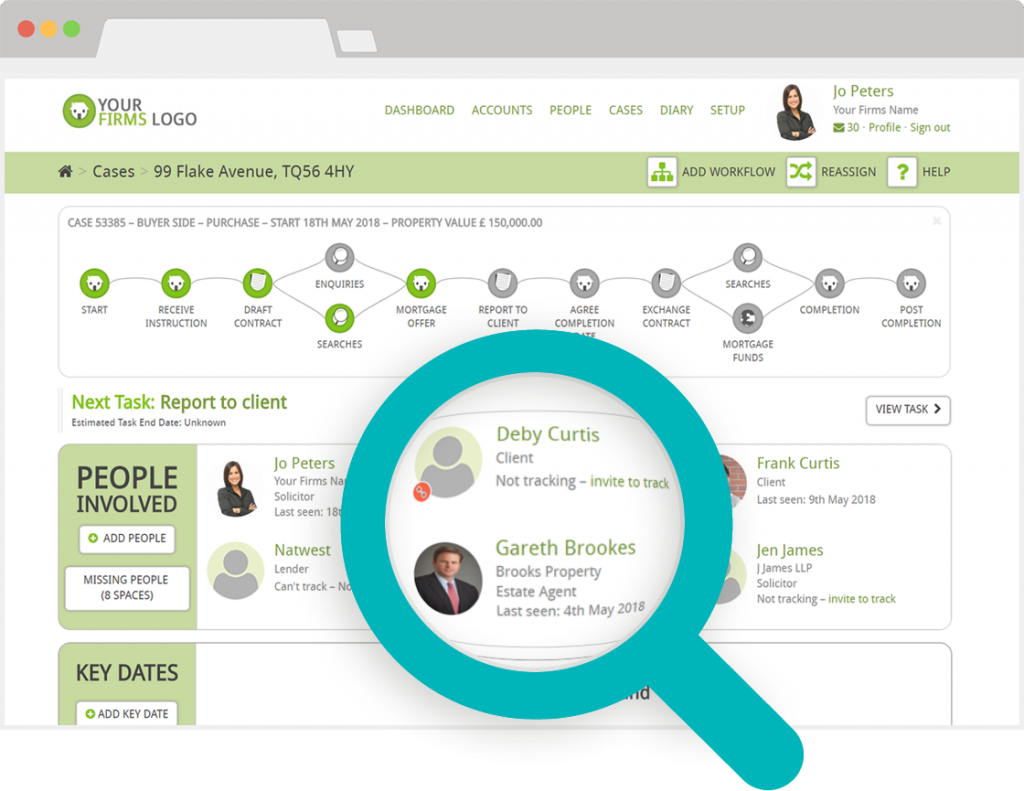By Amanda Hamilton, Patron of NALP (National Association of Licensed Paralegals)
The role of the paralegal—both actual and perceived—has changed; paralegals are no longer thought of just as graduates wanting to gain experience before moving on to qualify as solicitors. People currently entering the sector, whether they are graduates or career changers, are choosing to become professional paralegal practitioners, meaning that their ambition is not to qualify as a solicitor, but instead, to specialise in one or two areas of law and offer their specialist services to solicitors, in-house legal departments, or to the public. This can add value to a law firm, make it financially viable for an in-house department and, indeed, offer access to justice at a reasonable cost to consumers.
Paralegals bring benefits to a law practice
Paralegals can use their skills and knowledge to deal with a whole range of cases, and by doing so, they can help your practice grow by releasing more senior members of staff to deal with the areas that are more complicated and probably more lucrative. They can fill a gap that most solicitors can no longer afford to fill. In other words, they can do the work that you simply can’t charge the high fees for and would therefore turn down. Paralegals can do this within your own firm, or externally.
If you are looking to work with an external paralegal, then you’ll need to find a Paralegal Practitioner with a NALP Licence to Practice. These paralegals can offer their services direct to the consumer or can be sub-contracted by you to fulfil work you, for whatever reason, don’t wish to do. By sub-contracting with a reliable paralegal, you can save on full time salaries but still have access to the expertise you need.
Many paralegal practitioners specialise in a specific area of law, so having a few specialists that you can call on, who deal with that particular issue every day can help boost your business and your profits.
Remember also, that Paralegal Practitioners are restricted in the work that they can do because of the reserved activities as specified in S12 of the Legal Services Act 2007, so, it can be a two-way street. If they have any clients requiring work that is a reserved activity, they will refer clients to you for the jobs that they cannot offer to consumers. It could be a lucrative reciprocal arrangement.
Many large firms, from local authorities to large fashion houses, from Premiership Football Clubs to police forces, from giant construction projects to the defence sector already employ paralegals in-house. They find this cost-effective, productive and efficient. The legal sector could learn from this and consider taking a leaf from the corporate playbook.
Why work with a Licenced Paralegal Practitioner?
Paralegals with a NALP Licence to Practise have been subject to stringent due diligence; their qualifications, training, experience and character have all been investigated. They have to produce satisfactory evidence and references regarding their extensive experience in the areas of law in which they wish to practise. They must also have Professional Indemnity Insurance in place before being considered worthy of being granted a NALP Licence to Practise.
Using a Licensed Paralegal on a contractual basis in this way is a valuable economic asset to any firm as there is no PAYE to pay since the paralegal is self-employed and therefore responsible for paying their own tax and NI. In addition, you can negotiate a reasonable remuneration that is agreeable to both parties.
Other essential ways that paralegals contribute to the legal sector
In addition to the benefits a paralegal can offer solicitors and law firms, paralegals can contribute to the legal sector and society generally.
Since legal funding for consumers has virtually been eradicated, save for the most urgent types of cases, consumers who are not able to pay solicitors’ or barristers’ fees are struggling to get help with their legal problems. A Licensed Paralegal Practitioner can offer access to justice at a reasonable cost. For example: a solicitor may charge anywhere between £150 to £600 per hour for their services depending on what type of case it is and where the solicitor is located. Whereas a paralegal will charge £30 – £80 per hour for their services depending on what is required.
So, if a client cannot afford the solicitor’s fees, referring them to an appropriate paralegal can be a win-win for all concerned. Perhaps the bulk of the work can be undertaken by the paralegal with only certain activities requiring the solicitor.
The legal sector has a reputation for charging huge fees. This is understandable considering the huge amount of time and money it takes to qualify as a solicitor. But—reasonable as it may be—it still means that many consumers cannot access the legal help they require. Paralegals help to show that the legal sector is affordable and accessible, and not just the preserve of the wealthy. Many people believe their only options are to (a) give up and don’t fight the legal battle, (b) forego expert legal help and ‘do it themselves’, (c) take out a second mortgage to afford the advice and help they need, or (d) appeal to the good nature of the solicitor to provide their services pro-bono. None of these is a good solution for the consumer or the legal sector. Paralegals can help change this by offering affordable access to legal expertise and then referring clients to solicitors and barristers, if and when needed.
Paralegals help to break down the perceived barriers to accessing legal help. In this way they open doors and help to build trust, they show a commitment to fairness and equality of access, and help consumers develop an understanding of how proper, expert legal help can be invaluable in so many circumstances.
In other words, Paralegals are good for the legal sector. They are not—and should not be treated as—poor relations. They should be embraced, encouraged and utilised. For both the legal sector and for consumers there is nothing to lose and so much to gain.
ABOUT THE AUTHOR
 Amanda Hamilton is the Patron of the National Association of Licensed Paralegals (NALP), a non-profit membership body and the only paralegal body that is recognised as an awarding organisation by Ofqual (the regulator of qualifications in England). Through its Centres around the country, accredited and recognised professional paralegal qualifications are offered for those looking for a career as a paralegal professional.
Amanda Hamilton is the Patron of the National Association of Licensed Paralegals (NALP), a non-profit membership body and the only paralegal body that is recognised as an awarding organisation by Ofqual (the regulator of qualifications in England). Through its Centres around the country, accredited and recognised professional paralegal qualifications are offered for those looking for a career as a paralegal professional.
Threads: nalp_uk
Facebook: NationalAssocationsofLicensedParalegals
LinkedIn: national-association-of-licensed-paralegals
Instagram: nalp_uk
Bluesky: nalp-uk.bsky.social



